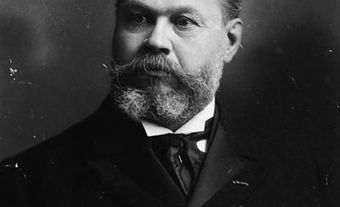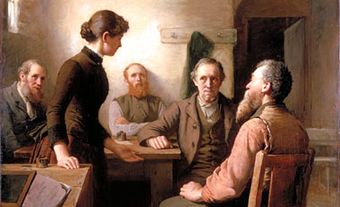Career Counselling
One of the major responsibilities of schools is to prepare students for employment and one of the ways they achieve this is through career counselling. Guidance counsellors are specialized teachers hired by secondary schools to help students in making educational and personal decisions about career opportunities.
Counsellors sometimes teach guidance courses, which introduce students to issues in the work world, and sometimes administer tests or provide other means of assisting students in matching their skills to job requirements. They may organize work experience for students or provide career-education materials for classroom use. The motivation to provide career counselling developed from early 20th-century educational reforms. Provision for the appointment of guidance counsellors was first made in 1921 in the Ontario Vocational Education Act.

 Share on Facebook
Share on Facebook Share on X
Share on X Share by Email
Share by Email Share on Google Classroom
Share on Google Classroom


